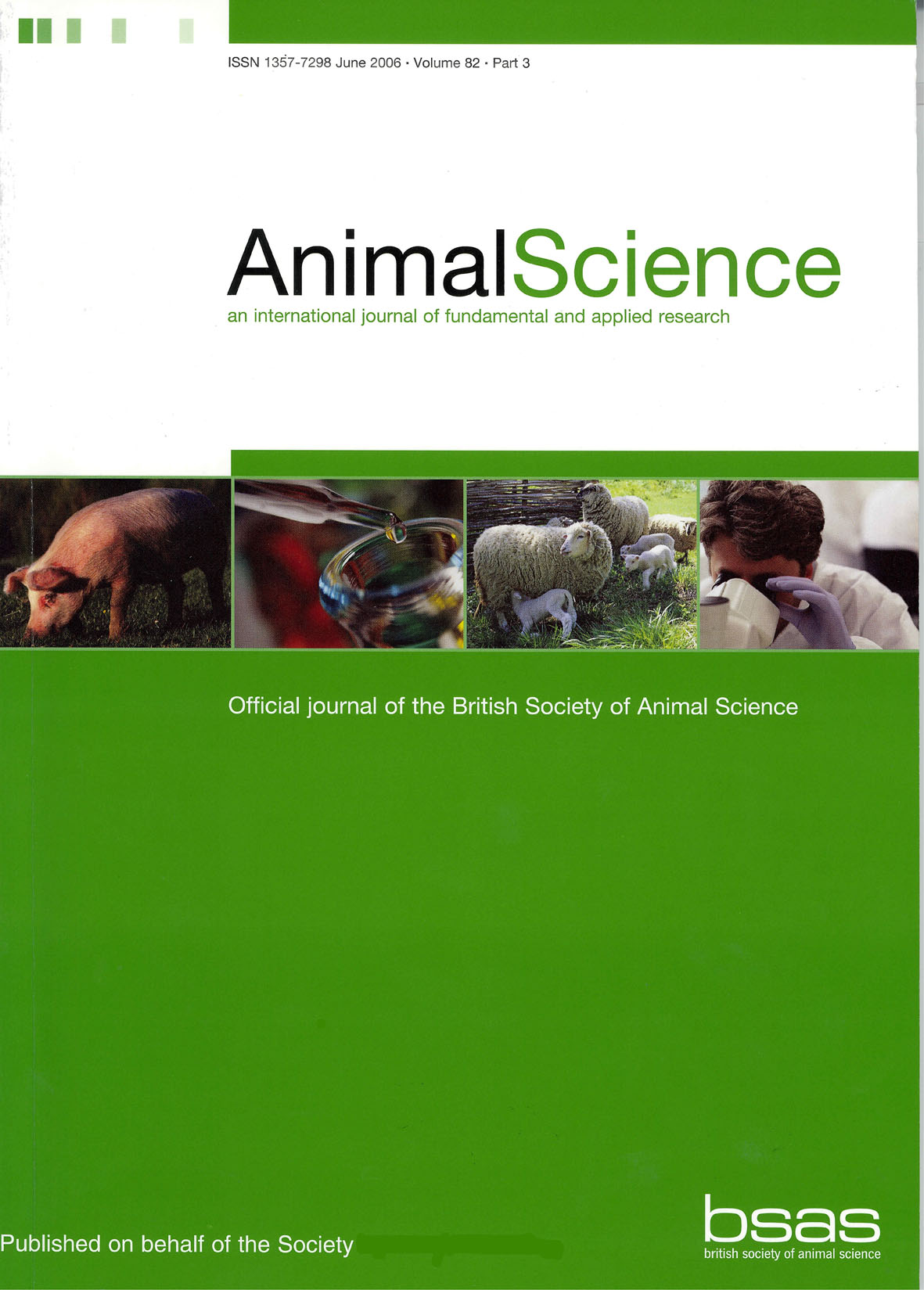Article contents
Egg weight and reproduction traits in laying hens: estimation of direct and maternal genetic effects using Bayesian approach via Gibbs sampling
Published online by Cambridge University Press: 18 August 2016
Abstract
Fertility, generally considered as a trait of the two parents, is perhaps best defined as the interaction between the male and female gametes in the production of a viable zygote. Although zygote development and hatchability are traits of the embryo influenced by maternal effects, in most previous studies they have been considered to be female reproductive traits. The aim of this work was to study the influence of sire on fertility and hatchability traits and to estimate the (co)variance components of direct and maternal genetic effects under a Bayesian setting via Gibbs sampling. We measured the fertility of 6396 eggs and the hatchability of 5393 embryos on an individual basis. In addition, egg weight from 42 to 63 weeks of age (EW63) was recorded on an individual egg basis. The sire accounted for a significant amount of the variation infertility and hatchability. For direct heritability, the marginal posterior mean, for fertility and hatchability were almost equal (0·24). The maternal heritabilities for fertility and hatchability were 0·20 and 0·18, respectively. The direct heritability value for the egg weight trait was high. The direct-direct genetic correlation between egg weight and hatchability was negative and significant. The genetic correlations between the direct effect of the egg weight trait and maternal effects for fertility and hatchability were low, with variable signs, and were not significant. On the other hand, significant negative genetic correlations between direct and maternal effects of fertility and hatchability were obtained (the posterior means were –0·56 for FE and –0·55 for HC).
- Type
- Breeding and genetics
- Information
- Copyright
- Copyright © British Society of Animal Science 2000
References
- 6
- Cited by


